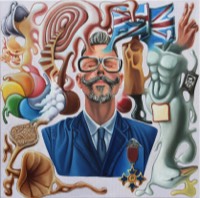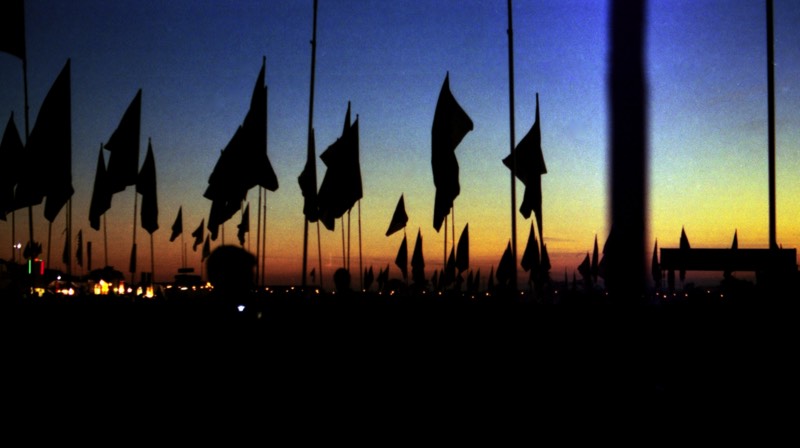Public Not Private Transport
Travel, 3 November 2023
by L.A. Davenport
I wasn’t expecting to return to the topic of electric cars so soon after my rant about them being an enormous confidence trick, yet an article on Vox has added another facet to the conundrum of how we reduce our dependence on fossil fuels in a sane and coherent manner.
David Zipper says that Norway, that poster child (his words) for the move to electric cars, is having second thoughts about having used government incentives to encourage drivers to switch from petrol- and diesel-fuelled vehicles.
On the surface, it’s very impressive that 87% of all new cars sales in the Nordic country are electric. It makes the rest of us look like utter laggards, as no other country has got anywhere near that level of sales. People, including obviously Elon Musk, have sung their praises. And it clearly shows what can be achieved if incentives are structures in the right way.
And yet this story also reveals something else; a perhaps more ancient and all-too human narrative: that of the law of unintended consequences.
Zipper reports that, as expected, the dramatic shift to electric vehicles has reduced emissions at the point of use, "but at the expense of compromising vital societal goals.”
He says the “eye-popping” subsidies that made the switch possible in such a scale have flowed mostly to the affluent, thus widening the gap between rich and poor.
Moreover, the move has hampered attempts by Norwegian cities to increase travel by public transport or bicycle, which “do more to reduce emissions, enhance road safety, and enliven urban life than swapping a gas-powered car for an electric one.”
The result? Norway has started to undo its electrification subsidies to slow the move to electric vehicles, and thus allow other transport sectors to catch up. Countries such as the UK and USA, and the European Union, should take note. It is the overall package that counts.
In other words, we should avoid a relentless focus on a single aspect of the climate crisis and expect that to act as a magic bullet to cure all our problems. But maybe that’s too much to ask of our short-termist politicians and their own relentless focus on their electoral prospects.
David Zipper says that Norway, that poster child (his words) for the move to electric cars, is having second thoughts about having used government incentives to encourage drivers to switch from petrol- and diesel-fuelled vehicles.
On the surface, it’s very impressive that 87% of all new cars sales in the Nordic country are electric. It makes the rest of us look like utter laggards, as no other country has got anywhere near that level of sales. People, including obviously Elon Musk, have sung their praises. And it clearly shows what can be achieved if incentives are structures in the right way.
And yet this story also reveals something else; a perhaps more ancient and all-too human narrative: that of the law of unintended consequences.
Zipper reports that, as expected, the dramatic shift to electric vehicles has reduced emissions at the point of use, "but at the expense of compromising vital societal goals.”
He says the “eye-popping” subsidies that made the switch possible in such a scale have flowed mostly to the affluent, thus widening the gap between rich and poor.
Moreover, the move has hampered attempts by Norwegian cities to increase travel by public transport or bicycle, which “do more to reduce emissions, enhance road safety, and enliven urban life than swapping a gas-powered car for an electric one.”
The result? Norway has started to undo its electrification subsidies to slow the move to electric vehicles, and thus allow other transport sectors to catch up. Countries such as the UK and USA, and the European Union, should take note. It is the overall package that counts.
In other words, we should avoid a relentless focus on a single aspect of the climate crisis and expect that to act as a magic bullet to cure all our problems. But maybe that’s too much to ask of our short-termist politicians and their own relentless focus on their electoral prospects.
Another piece that caught my this week, and underlined the folly of crazes, was a column in The Times by Robert Crampton.
He notes that a new fad has hit Tiktok: so-called silent walking. What that means is teenagers are taking their earbuds out and letting in the sounds of the world around them.
Apparently, it has left many shocked by the experience. That doesn’t surprise me. The world, especially in cities, is a far busier and noisier place than it seems to people who seal themselves either into music and podcasts on their headphones or into the bubble of their car.
Crampton asks us not to mock these teenagers as they become accustomed to their surroundings. I on the other hand find it sad to watch young people isolating themselves from their fellow pedestrians and life in general, including of course from the happenstance of hearing something unexpected.
There is so much going on, so much to absorb and learn from the world around us. Voluntarily removing such a crucial part of our daily experience—our hearing—is to reject, in a way, a part of life.
I know why I find it so sad: I did exactly the same when I was a teenager.
I took my Sony Walkman and a few choice cassettes with me everywhere I went. For a period, I saw almost nothing of the world around me without the accompanying soundtrack of The Cure, Depeche Mode and David Bowie, with some Jimi Hendrix thrown in for good measure.
One day, I realised I was missing something. No, not something: a lot. So with some difficulty, I put down my headphones and learned to walk out in the world, alone and unprotected, with no sound bubble to shield me from intrusion. My ears weren’t used to it, and it took some time to adjust to the cacophony of modern life.
But of course I did eventually. Now, I would never go back. And because I listen to music when I want to, rather than as a tool to block out life, I appreciate it all the more.
He notes that a new fad has hit Tiktok: so-called silent walking. What that means is teenagers are taking their earbuds out and letting in the sounds of the world around them.
Apparently, it has left many shocked by the experience. That doesn’t surprise me. The world, especially in cities, is a far busier and noisier place than it seems to people who seal themselves either into music and podcasts on their headphones or into the bubble of their car.
Crampton asks us not to mock these teenagers as they become accustomed to their surroundings. I on the other hand find it sad to watch young people isolating themselves from their fellow pedestrians and life in general, including of course from the happenstance of hearing something unexpected.
There is so much going on, so much to absorb and learn from the world around us. Voluntarily removing such a crucial part of our daily experience—our hearing—is to reject, in a way, a part of life.
I know why I find it so sad: I did exactly the same when I was a teenager.
I took my Sony Walkman and a few choice cassettes with me everywhere I went. For a period, I saw almost nothing of the world around me without the accompanying soundtrack of The Cure, Depeche Mode and David Bowie, with some Jimi Hendrix thrown in for good measure.
One day, I realised I was missing something. No, not something: a lot. So with some difficulty, I put down my headphones and learned to walk out in the world, alone and unprotected, with no sound bubble to shield me from intrusion. My ears weren’t used to it, and it took some time to adjust to the cacophony of modern life.
But of course I did eventually. Now, I would never go back. And because I listen to music when I want to, rather than as a tool to block out life, I appreciate it all the more.

He should be considered as such, of course, and I can’t wait to hear his latest batch of ditties, which I have no doubt confirm his status, at least to me.
Except that I can wait. I could get the songs now on Bandcamp and play them on myriad devices. But I have ordered the CD, and I would rather wait until I can tear open the packet and pop it into my player. Then I can read the liner notes while I enjoy the first spin of the disc.
Maybe that’s a little old fashioned. But it keeps me tethered to the here and now, and not lost in my little bubble. What should we call that way of physical music? Silent listening?
© L.A. Davenport 2017-2024.
Note: Commissions may be earned from the links above.
Affiliate Disclosure
Affiliate Disclosure
Cookies are used to improve your experience on this site and to better understand the audience. Find out more here.
Public Not Private Transport | Pushing the Wave
